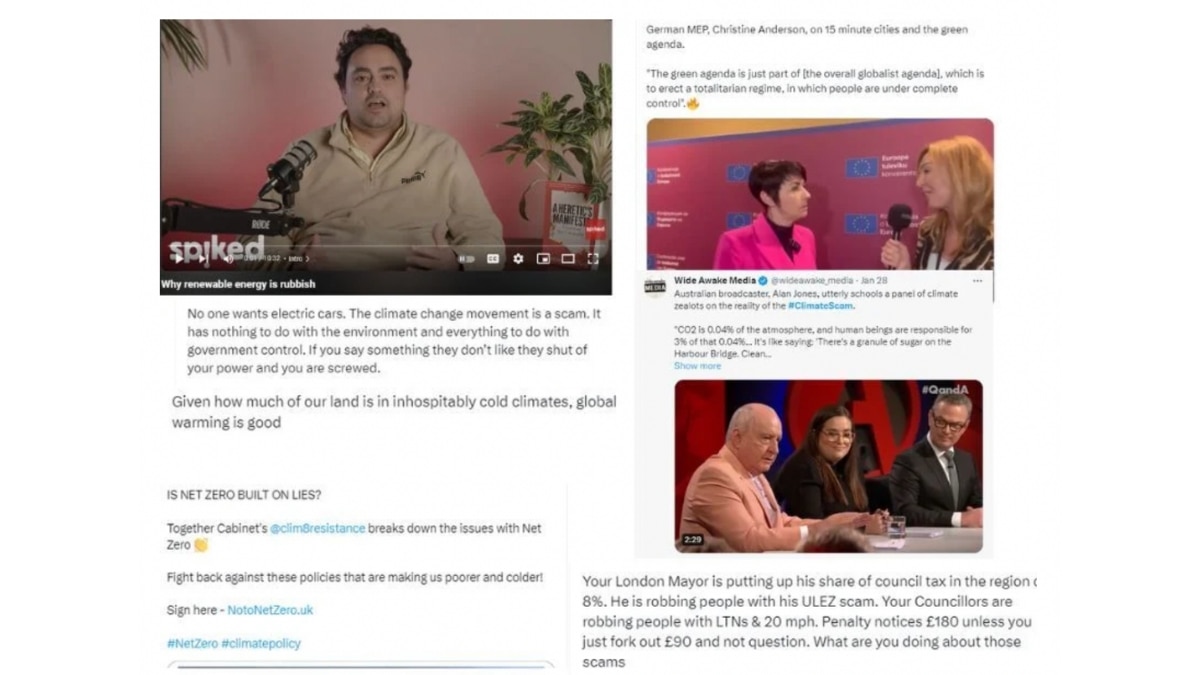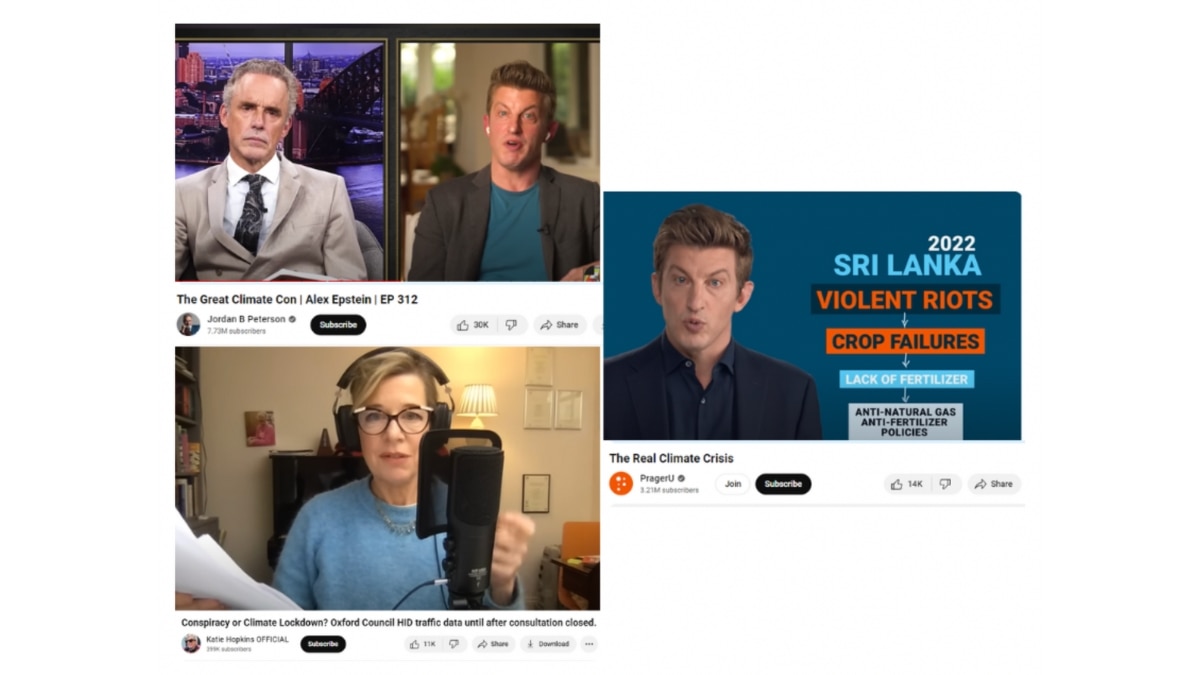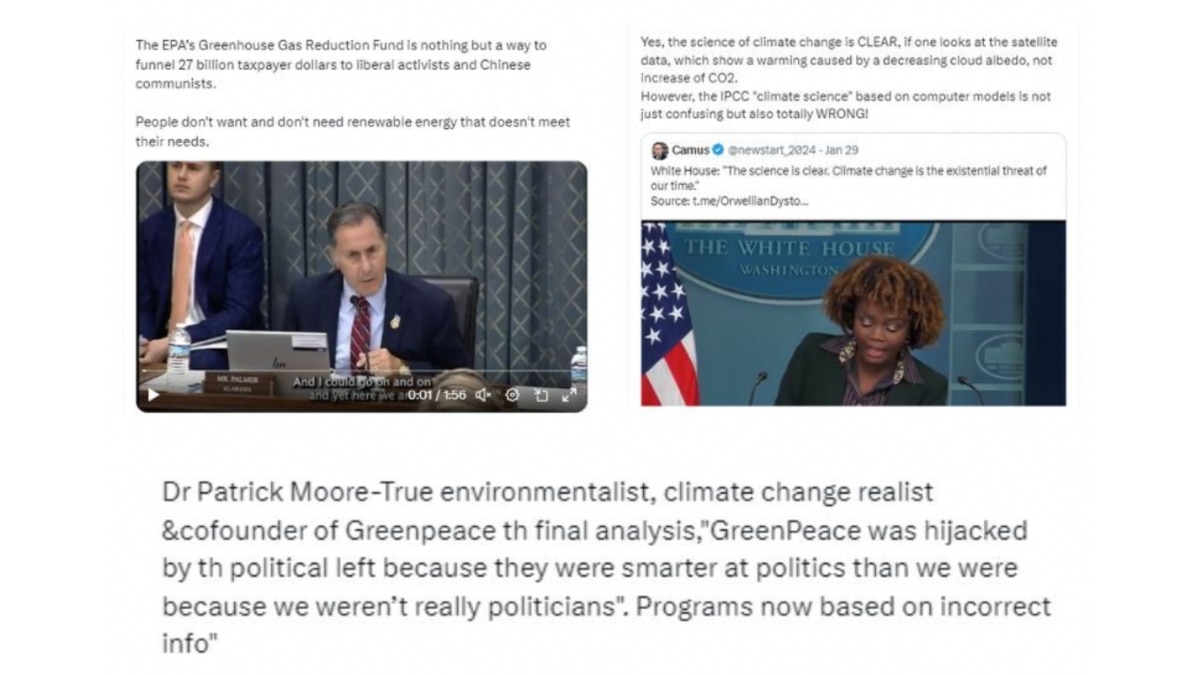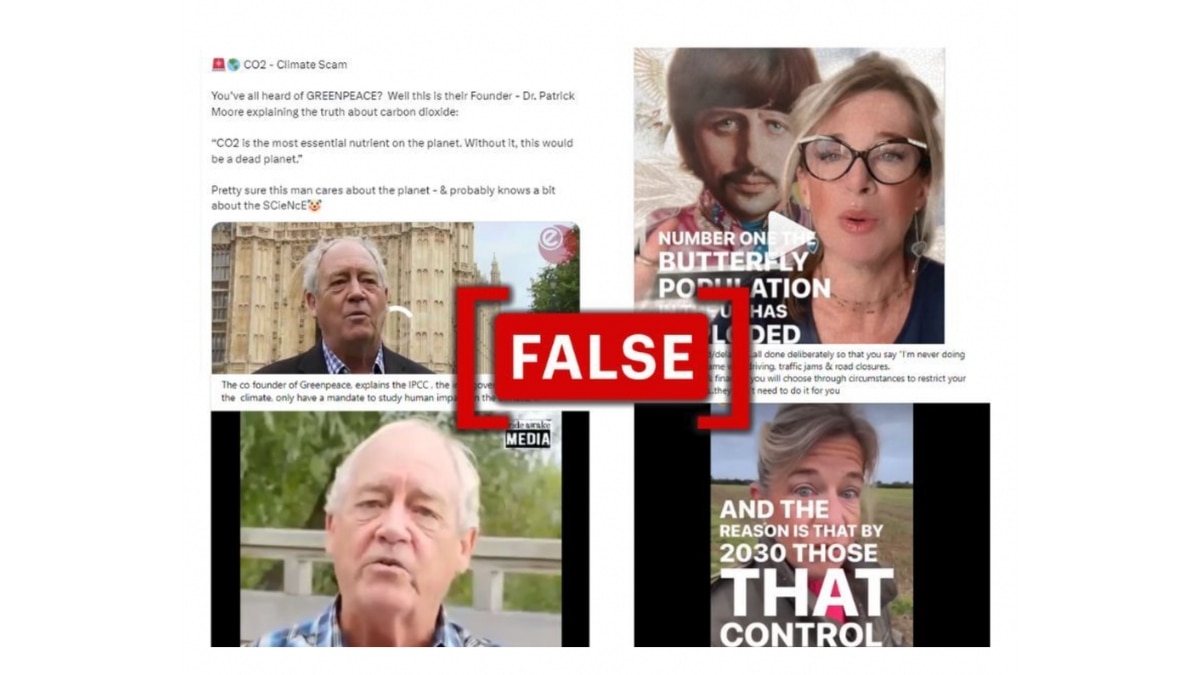‘New Climate Denial’: What's Driving This Tactic And How It Impacts Our Response To Climate Change
Why is an emerging trend of downplaying the harms of climate change and challenging the science around it worrying experts? Logically Facts explores how it emboldens climate misinformation.

If you are a regular social media user, with even a little bit of interest in climate change, then you would have most likely come across posts claiming how global warming is “good” for the planet and how more “CO2 is important for increasing agricultural production.”
Such claims are part of an emerging new trend often referred to as "the new climate denial" wherein climate skeptics don’t anymore outrightly deny the existence of climate change but question the established science and potential solutions surrounding it with twisted arguments. So, instead of labeling global warming a “hoax”, you now have climate change contrarians asserting that renewable energy is “ineffective” or that climate change is a “pretext” to shut down the global farming industry.
With this new trick up their sleeves, skeptics now train their guns at anti-climate change plans and policies like 15-minute cities, Net Zero, and vehicle speed limits.

The enchantment of “the new climate denial” among climate change skeptics is so much so that in 2023, it made up for 70 percent of denialist claims posted on YouTube, up from 35 percent in 2018 — as per an analysis by the British-American nonprofit Center for Countering Digital Hate (CCDH).
CCDH studied the transcripts for over 12,000 videos— posted by 96 YouTube channels between 2018 and 2023—that were collectively viewed over 325 million times.
Narratives associated with this new form of climate change denial often emanate from accounts boasting a substantial following on social media platforms.
One account on X (formerly Twitter) which has more than 1.6 million followers claimed that "there's little evidence of man-made climate change,” while another with followers in hundreds and thousands furthered the claim that "human activities are not responsible for climate change." Despite being called out for spreading misinformation, such accounts continue to make unsubstantiated claims and attack anti-climate policies.
The CCDH report noted that influential deniers like Jordan Peterson had also joined the bandwagon and were spreading the new denial narrative on YouTube. Logically Facts found that far-right political commentators like Katie Hopkins and popular channels like ‘PragerU’, which promote “educational content,” were also following the trend.

Speaking to Logically Facts, Evan Geroge, director of communications at the Emmett Institute on Climate Change & the Environment at UCLA (University of California, Los Angeles) School of Law, said, “We’ve seen this shift to denigrating specific climate solutions, like EVs (electric vehicles) and solar power, or downplaying the harms(of climate change) and portraying environmental advocates as being hysterical or overreacting.” He added, “The right-wing approach to climate misinformation has also been to drum up conspiratorial thinking by suggesting that climate-oriented policies are not actually about combating climate change but are money-making schemes or (increasing) government control.”
The popularity of “the new climate denial” continues to grow despite several experts and fact-checking organizations, including Logically Facts, debunking many of its narratives repeatedly.
This growing traction of “the new climate denial” is a cause of worry for those concerned about climate change, and it’s important to understand the evolving landscape of this new trend.
Why is there a shift?
Let’s first try to understand the need behind adapting a new way of challenging the science on climate crisis.
“Experts suggest climate deniers have changed tactics because the results of global warming and climate change are evident to the public,” noted the CCDH report. Citing Michael Mann, a climatologist and geophysicist, and John Cook, a researcher on climate skepticism, the report further suggested that opponents of climate action were shifting towards misinformation targeting climate solutions to impede policy progress. Mann identified this shift as "inactivism," involving tactics like deflection, delay, division, despair, and doomism.
Prof. Bill McGuire, who teaches geography and climate hazards at University College London, described the new strategy as "climate appeasement." Speaking to Logically Facts he said, “Over time, there has been a shift from outright denial of climate breakdown to downplaying its significance and impact, especially as the undeniable evidence of climate breakdown has increased.”
How can ‘the new denial’ influence action against climate change?
Experts warn that the new spin on denying climate change science and solutions can influence public opinion and deter collective action on climate change.
“Presenting climate breakdown as not as serious as it is inevitably makes people less worried and, therefore, less bothered about doing what needs to be done. Whereas politicians, and business leaders are concerned, this can result in a diluting of climate action policy that, quite frankly, will prove to be catastrophic and hinder a unified approach to combating climate change,” said Prof. McGuire.
Supporting Prof. McGuire’s assertions, UCLA’s Geroge said, “We know that young people are more concerned about the climate crisis than older generations, and yet they’re much more likely to be on social media platforms where they’ll be exposed to climate misinformation, which looks to confuse and even disempower people from taking action. I think it could dissuade people from voting or participating in the clean energy transition.”
“If you are bombarded by social media feeds downplaying the effectiveness of solar panels or calling into question whether you’ll really save money or remove emissions from the grid, you’re not as likely to install solar in your home,” he added.
Such concerns are hard to ignore when organizations, such as the United Nations’ Intergovernmental Panel on Climate Change (IPCC), the U.S. Environmental Protection Agency (EPA), and global environment non-profits like Greenpeace are labeled as frauds for supporting anti-climate change policies, while individuals like Patrick Moore and Katie Hopkins, known for spreading climate misinformation, are hailed on social media.

Several claims by Moore, who vehemently advocates that “more CO2 is good for planet” and downplaysAgenda 2030 ( a United Nations ‘plan of action for people, planet and prosperity’) and NetZero, have been debunked on several occasions. Fact-checking organizations have also debunked several claims by Hopkins who has often negated the effects of climate change or resorted to fearmongering regarding measures aimed to reduce carbon emissions.

So, what’s the way forward?
Unequivocally calling out falsehoods and halting their spread on social media seems to be the most recommended way experts suggest for countering this rising tide of climate disinformation, which is now evidently taking new shapes and forms.
“We need to call out those underplaying climate breakdown at every opportunity, and put as much effort as possible into ensuring that everyone has a true picture of the severity of the climate emergency, and appreciates the dire situation we are in,” Prof. McGuire told Logically Facts.
“Climate scientists, in particular, need to make a great deal more noise, ensuring that any climate appeasement is drowned out. We can't afford to sit back and let vested interests pull the wool over the eyes of the public and politicians. We need to tell the truth..”Highlighting the significance of online platforms to combat climate misinformation, Geroge said, “The first step would be to follow the recommendations of experts and organizations like the CCDH which have recommended that Google update its policy to include prohibitions on new denial-style misinformation about “causes, impacts, and solutions.” That would in theory put YouTube on the hook for not allowing creators to monetize this misinformation.”
The CCDH report recommends Google update its policy to also prohibit “content that contradicts the authoritative scientific consensus on causes, impacts, and solutions to climate change.”
As per Google’s latest policy for YouTube, the platform prohibits advertisements on climate change denial content that contradicts “well-established scientific consensus around the existence and causes of climate change.” This refers to claims that deny human impact and greenhouse gas emissions on climate change, climate change as a hoax, or global warming is not happening. Currently, the policy makes no mention of misinformation on climate change impact and solutions.
Logically Facts has reached out to YouTube and Google for comment and will update this story if and when we receive a response.
(Edited by Sanyukta Dharmadhikari and Priyanka Ishwari)
This report first appeared on logicallyfacts.com, and has been republished on ABP Live as part of a special arrangement. Apart from the headline, no changes have been made in the report by ABP Live.





























